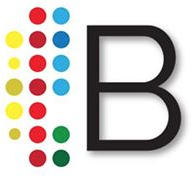Mary Ellen Bates of Bates Information Services recently posted a great presentation called "Top Ten Tips for Searching LinkedIn". Lots of really great tips and tricks. Mary Ellen will also be speaking at this year's Special Library Association Annual Conference in Chicago on Tuesday, July 17th. Her program is called "From Info Pro to Info Hero: 5 Easy Ways to turn Information into Insight". We're excited to hear her ideas. In the meantime you can check out her LinkedIn tips below:
Pinterest for Business Research
Clearly, we all love Pinterest. It's the fastest growing social network and shoppers spend more money via Pinterest than Facebook. But can you do more than pin recipes, shoes and interior design? Well, yes! You can do business research! Now of course, it's not the first place we'd turn for business research, but you can still learn plenty of interesting things about a company on Pinterest. You can find out about a company's culture, how they interact with their customers and what things they value. You might even pick up on future company plans. Even venture capital firms have Pinterest pages. Here are a few Pinterest pages and boards we think are good examples of using Pinterest to learn about companies and industries: Bessemer Venture Partners: Bessemer is a large venture capital firm and you can learn a lot about them on their Pinterest page. They've got their portfolios and exits pinned, and they even have boards dedicated to portfolio companies by industry.
Pinterest is a great place to find infographics. Here's a board dedicated to Social Media & Internet Infographics:
HomeAway, a site for vacation rentals, engages their customers not only with vacation homes to stay in, but also, contests and interior design ideas:
This board is dedicated to "Brands, Businesses & Blogs"--this is a quick way to see how lots of different companies are using Pinterest:
There's even a page to help businesses succeed with their Pinterest campaigns:
Social Media for Business Research
As more and more companies are using social media to connect with their customers and spread the word about their products, it makes sense that as business researchers we need to keep these social sites on our radar. We wouldn't dream of not scouring the company website for insight, and now we should feel the same way about the company presence on LinkedIn, Twitter, Facebook, and YouTube. Social Media is extremely important for researching smaller private companies and start-ups because you won't find reports or news on them elsewhere. LinkedIn - Search for the company and link to the "Insightful Statistics about Employees" section to see which employees are on LinkedIn, where they have worked before and where they went after they departed. Look to see what Groups the company belongs to.
Facebook - Look for who the company "Likes" to see find vendors, partners, suppliers, and enthusiasts. Keep an eye on the timeline for product announcements and progress reports.
YouTube - Search for the company channel to see videos. You can see who works there and sometimes their customers. A video can tell you a lot about corporate culture.
Twitter - Consumers are using Twitter as a complaint line, so watch how the company handles those issues and interacts with the customer. You can use HootSuite or TweetDeck to follow multiple companies and/or keywords of interest.
Pinterest - The fastest growing social media site right now! Search for company name under the people search or just Google company name and Pinterest. Companies can show you in images what represents their values and culture.
The Offical Board - Organizational charts of the world's 30,000 largest corporations. Find contacts at companies and see the reporting lines.
CrunchBase - Free database of technology companies, people, and investors. You can find funding information here that you won't see anywhere else.
Casual Friday: AnalyzeWords, or The Twitter Peppy-meter
Happy bunnies 'n baskets weekend! This Friday we bring you the really fun love child of instantaneous-colorful-chart-generators and Twitter. It’s called AnalyzeWords, and it was developed by a team of researchers headed by professors at the Universities of Auckland and Texas. Using a program called Linguistic Inquiry and Word Count, they analyze junk pronoun words (which it turns out aren’t really junk) as amalgamated over a big swath of tweets, to figure out a communicator’s psychological state. To play simply add the twitter handle of your entity du jour, click Analyze Tweets, and voila, immediately you have three spiffy little chart clusters categorized by Emotional Style, Social Style, and Thinking Style. As you can see from the picture, @JetBlue is quite chipper! Now if only it would also work when I submit the phone number of that cute guy I met at the gym yesterday…
The Thank You Economy
Gary Vaynerchuk of wine fame is now the guru of social media. If you are a Vayniac you may already know that Gary has taken the lessons he learned from building an online empire with WineLibrary.com and has published two books and started his own consulting firm, VaynerMedia, to help companies move into the future of business - social media. To Vaynerchuk it's actually the old way of doing things -- getting to know your customers and making a real connection. You know, like the neighborhood businesses of yore used to do. By forming a real relationship companies can humanize their brands. He says it's all based on using social media to listen to customers, not what most companies are doing now which is pushing information to customers and trying close the deal too quickly. Check out Vaynerchuk's interview with Piers Morgan about his new book, The Thank You Economy.
Social Media and Customer Complaints
Everyone has seen the vents and rants on Facebook and Twitter but do customers really expect companies to respond? Are companies using these venues to answer complaints? eMarketer's recent articles When Consumers Tweet Complaints, Should Brands Respond? and How well Do Companies Respond to Complaints? look at the bigger picture of social media and marketing and how complaints online are being addressed or not. "According to customer experience research company Maritz Research, nearly half of consumers who tweeted a complaint directed toward a brand expected the company to respond—or at least to read their tweet. However, only a third of those consumers received a tweeted response from the mentioned brand." Interestingly, older customers 55+ expect a company to address their online complaints everytime. Younger customers and those more active on Twitter believed that companies would not respond. It seems they have they have lowered their expectations based on experience.
Companies should be paying more attention to their social media outlets and answering questions and complaints more often. "Consumers are overwhelmingly positive when brands take the time to actually respond to them on Twitter. The Maritz study indicates that 86% of Twitter complainers would have liked or loved to hear from the company regarding their complaints—and out of those who heard back, 75% were satisfied with the company’s response."
Obviously, complaints can help the company improve service but companies are also discovering that participating in this type of online conversation can help build relationships with customers. For instance Virgin Airlines tries to respond to every question or complaint tweet @VirginAmerica. Abby Lunardini, vice president of corporate communications, told eMarketer in a September 26, 2011, interview that customers were surprised to learn that someone in the airline industry was listening and responding to the online chatter and she believes that the engagement is improving service and leading to customer loyalty with more customers choosing to fly Virgin Airlines again.
Follow IDC Analysts on Twitter
If you've never used IDC before, it's a great database for keeping up with market intelligence for the IT world. Unfortunately, it's pretty expensive so your organization may not have access. However, lots of IDC analysts are on Twitter and following them can still help keep you in the loop for anything from Big Data to Social Media to Apps. You can follow specific IDC analysts or industries or even different countries.














